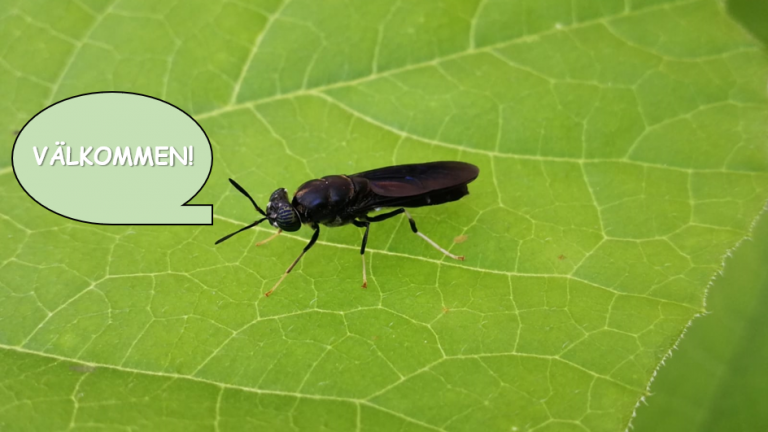The Environmental Technology group was pleased to host Christine Moe, Gangarosa Professor of Safe Water and Sanitation at Rollins School of Public Health, Emory University, USA. During her visit, 3-4th of September 2018, Christine met the researchers and PhD students in the group and discussed potentials for future collaboration in research and education with sanitation sector. Christine also held a lunch seminar where she presented her research finding regarding “Examining Exposure to Fecal Contamination in Low-Income Urban Environments: Findings from the SaniPath Exposure Assessment in Seven Cities”. Christine’s visit came within the framework of the project “Microbiological and pharmaceutical risks from reuse of wastewater streams and products in agriculture, MPR-WST-agri”. MPR-WST-agri was funded in 2017 by the Swedish Foundation For International Cooperation In Research And Education- STINT. The project is led by Sahar Dalahmeh, a researcher in the group. 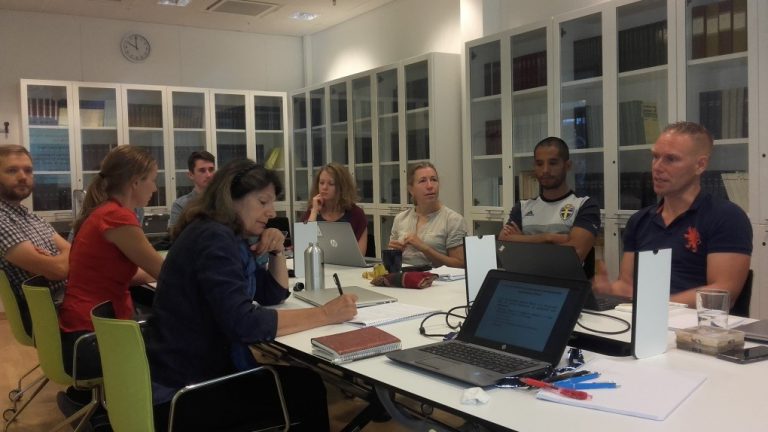
Implementation of demonstration biochar filter for small-scale sewage treatment funded by Swedish EPA
The Swedish Environmental Protection Agency decided to grant Sahar Dalahmeh, a researcher at the Swedish University of Agricultural Sciences, 475 000 SEK to implement demonstration biochar filter for Small-scale Sewage Treatment”. The project intends to scale the laboratory system to full scale module to treat single- household wastewater. Within the project, system’s function and treatment ability as well as outgoing water quality will be evaluated. The Projects period is August 2018-July 2019.
Demonstrations biokolsanläggningar för småskalig avloppsrening finansierades av Naturvårdsverket
Naturvårdsverket beslutade att bevilja Sahar Dalahmeh, forskare på Sveriges Lantbruksuniversitet 475 000 kronor för projektet “Demonstrationsprojekt av biokolsanläggningar för småskalig avloppsrening”. Projektet avser att skala upp laboratoriesystemet till full skala modul som behandlar avloppsvatten avsende övergörande ämne och mikroföroreningar. Det som utvärderas är systemets funktion och behandling förmåga samt utgående vatten kvalité. Projektsperiod är September 2018- juli 2019.
Miljöteknikgruppen är värd för professor Christine Moe
Miljöteknikgruppen var nöjd med att vara värd för Christine Moe, Gangarosaprofessor i säkert vatten och sanitet vid Rollins School of Public Health, Emory University, USA. Under sitt besök, 3-4 september 2018, träffade Christine forskarna och doktorander i gruppen och diskuterade potentialen för framtida samarbete inom forskning och utbildning med sanitetssektorn. Christine höll också ett lunchseminarium där hon presenterade sitt forskningsresultat angående ”Undersökning av exponering för avföringskontaminering i låginkomstmiljöer: Resultat från SaniPath Exposure Assessment in Seven Cities”. Christines besök kom inom ramen för projektet ”Mikrobiologiska och farmaceutiska risker vid återanvändning av avloppsvatten och produkter i jordbruket, MPR-WST-agri”. MPR-WST-agri finansierades 2017 av stiftelsen för internationalisering av högre utbildning och forskning (STINT). Projektet leds av Sahar Dalahmeh, en forskare i gruppen.

Ivã Guidini joins the environmental engineering group
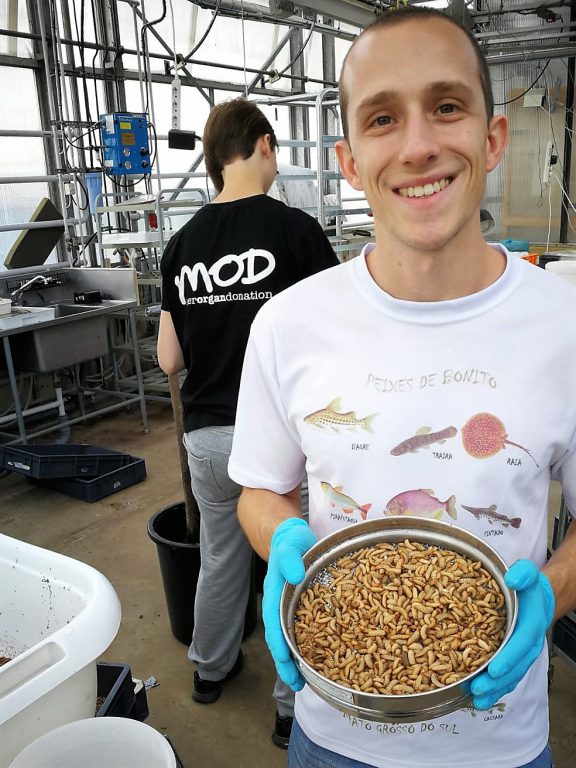 Foto: Viktoria Wiklicky
Foto: Viktoria Wiklicky
I am a biologist from São Paulo State University (Unesp) and a PhD student from the Unesp Aquaculture Center (Caunesp), where I’m currently studying different handling methods of windrow thermophilic composting using fish carcasses (as nitrogen source) and wood shavings/peanut shells (as carbon sources). My study involves practical information about the composting process, economic assessment analysis and the influence of the organic composts on soil fertility, with special regard to nitrogen.
In SLU, I will study the BSF composting process using fish carcasses as larvae feed, with two main goals. In the first experiment, we will evaluate the improvement of larvae’s nutritional quality by supplying food waste and fish carcasses over time in different proportions. In the second experiment, we will verify the dynamics of pathogen reduction by means of the BSF larvae composting system, using fish carcasses as feed.
Ivã Guidini ansluter sig till kretsloppsteknikgruppen
 Foto: Viktoria Wiklicky
Foto: Viktoria Wiklicky
Jag är biolog från São Paulo State University (Unesp) och är doktorand från Unesp Aquaculture Center (Caunesp), där jag för närvarande studerar olika metoder för hantering dödafisk. Jag har tidigare studerat termofil kompostering, där dödfisken använts som kvävekälla, medan träspån /jordnötsskal används som kolkälla. Jag har studerat komposteringsprocessen, gjort en ekonomisk bedömningsanalys samt undersökt de organiska gödningsmedlens påverkan på jordens fertilitet.
Under min tid vid SLU ska jag studera fluglarvskomposteringsprocessen av dödfisk. Studie har två huvudmål: 1) att utvärdera fluglarvskomposteringens processeffektiviteten och larvernas näringskvalitet vid behandling av dödfisk ensamt och vid sambehandling av dödfisk och vegetabiliskt avfall; 2) att utvärdera vad som händer med den zoonotiska sjukdomsalstrande bakterien Salmonella spp. under fluglarvskompostering av dödfisk.
Kontakt
Cecilia Lalander
Påverkar larvspecifika bakterier komposteringsprocessen?
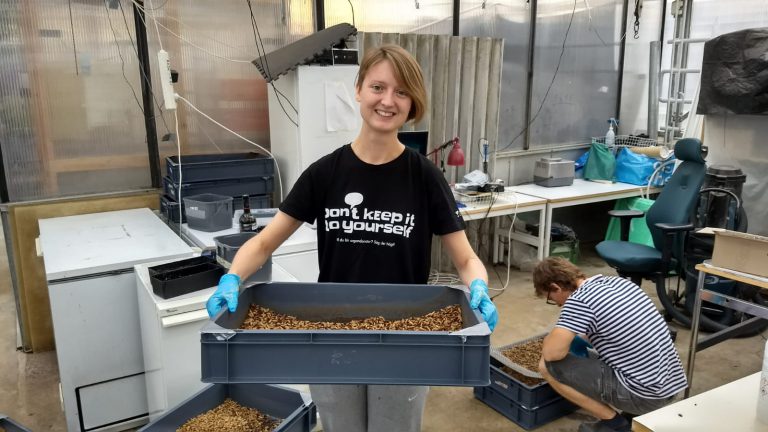 Foto: Evgheni Ermolaev
Foto: Evgheni Ermolaev
Jag heter Kristina Lundgren och läser till civilingenjör inom miljö- och vattenteknik på UU och SLU. Under hösten kommer jag att göra mitt exjobb på institutionen för energi och teknik på SLU inom ämnet fluglarvskompostering med amerikansk vapenfluga. Projektet går ut på att se hur larvspecifika bakterier påverkar komposteringsprocessen. Tanken är att se om det går att göra processen mer stabil eller effektiv genom att tillsätta en eller flera bakterier i substratet som larverna ska bearbeta. Det finns ännu inte så många studier gjorda med det här fokuset, så det ska bli väldigt spännande att se vad mina försök visar.
Kontakt
Cecilia Lalander
Effects of larvae-specific bacteria on composting process
 Foto: Evgheni Ermolaev
Foto: Evgheni Ermolaev
My name is Kristina Lundgren and I am a student in a master programme in Environmental and Water Engineering at Uppsala University and SLU. Starting in autumn, I will work on my Master Degree project at the Department of Energy and Technology, SLU, in the field of fly larvae composting using black soldier fly. In the project I am investigating how larva-specific bacteria affect the composting process. The idea is to see if it is possible to make the process more stable or effective by adding one or more bacteria to the substrate that the larvae will process. There are not so many studies that have this focus, so it will be very exciting to see what my experiments will show.
Contact
Cecilia Lalander
What does the term ‘ecotechnology’ mean?
In 2015, the term ‘ecotechnology’ was used as one of the themes for a funding call by the joint Baltic Sea research and development programme BONUS. The call defined areas where ecotechnologies could be applied, but did not explicitly define the term itself. Against this backdrop, researchers including Jennifer McConville from our group decided to systematically review the literature on the use of the term ‘ecotechnology’ to inform the future work of the BONUS RETURN project. Many articles simply use the term as a “buzzword” without offering a definition of the term. However, the review found 49 articles with explicit definitions. These definitions contain a variety of embedded concepts for describing the types of technologies, the benefits and the processes that can be seen as ecotechnologies. We clustered these concepts into a conceptual framework that we feel captures the multiple perspectives represented in the term ecotechnology. Note that several of these concepts may be in conflict with each other. This framework is offered as a starting point for discussion around a possible common vision of ecotechnology, or at a way for authors to be transparent about the concepts embedded in their use of the term. On the basis of this review the author propose the following definition for use in the BONUS RETURN project: ‘‘Eco-technologies are human interventions in socialecological systems in the form of practices and/or biological, physical, and chemical processes designed to minimise harm to the environment and provide services of value to society’’ 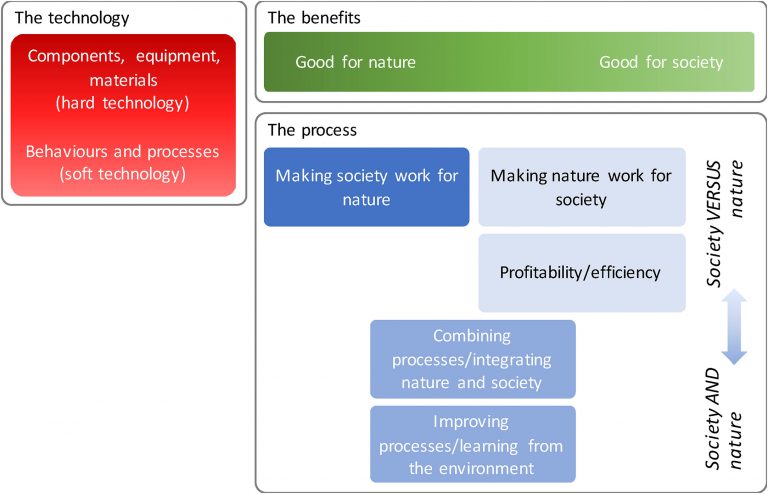
Open [Green] House 25th of September
On September 25 at 13:00-16:00 we will have Open [Green] House in our black solider fly research facility at SLU campus Ultuna in Uppsala. We will demonstrate our facility for breeding of BSF flies and our research on different aspects of waste management using the BSF larvae.
During the Open [Green] House, the researchers of the Environmental Engineering group will present ongoing projects.
